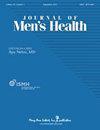韩国成年男性对性别角色规范的遵从与抑郁状况
IF 0.6
4区 医学
Q4 Medicine
引用次数: 0
摘要
社会经济两极分化对男性寻求传统男性形象产生了影响;因此,符合性别角色规范的模式正在发生变化。考虑到行为者导向的观点,这项研究假设,对性别角色规范的遵守在男性群体中会有所不同,并与心理健康的差异有关,特别是在抑郁症状方面。为了验证,在2022年1月至2月期间,对897名年龄在19-69岁的韩国男性进行了性别角色和健康调查,以评估男性性别角色、传统性别角色态度和描述性男性规范,并使用8项流行病学研究中心抑郁量表测量参与者的抑郁症状水平。发现了四种潜在特征——“高度从众”、“中等从众”、“不符合性别刻板印象”和“不符合男性性别角色”。不符合男性性别角色形象,即接受传统的性别刻板印象,与抑郁得分显著升高有关。该剖面还表现出年龄较低、家庭收入较低、未婚或无伴侣生活的特征。不符合性别刻板印象者抑郁得分最低。根据研究结果,偏离性别角色规范的人,特别是在自我认定的男子气概方面,更有可能患上抑郁症。这表明,遵守性别角色规范与男性心理健康之间的关系是复杂而多样的。本文章由计算机程序翻译,如有差异,请以英文原文为准。
Profiles of conformity to gender role norms and depression among adult Korean men
Socioeconomic polarization have consequences for men seeking a traditional male image; consequently, the pattern of conformity to gender role norms is changing. Taking into account an actor-oriented perspective, this study hypothesized that adherence to gender role norms would vary among male groups and would be associated with differences in mental health, specifically in terms of depressive symptoms. For verification, a Gender Roles and Health Survey was conducted with 897 Korean men aged 19–69 years between January and February 2022 to assess male gender roles, traditional gender role attitudes, and descriptive masculine norms, and to measure participants’ level of depressive symptoms using the 8-item Center for Epidemiological Studies Depression scale. Four latent profiles—“high conformity”, “medium conformity”, “non-conformity to gender stereotypes” and “non-conformity to male gender roles”—were identified. The non-conformity to male gender roles profile, which entails accepting traditional gender stereotypes, was associated with a significantly higher depression score. This profile also exhibited the characteristics of lower age, lower household income and being unmarried or not living with a partner. The non-conformity to gender stereotypes profile showed the lowest depression score. Based on the study findings, individuals who deviate from gender role norms, particularly in terms of self-ascribed masculinity, are more likely to experience depression. This suggests that the relationship between adherence to gender role norms and men’s mental health is complex and varied.
求助全文
通过发布文献求助,成功后即可免费获取论文全文。
去求助
来源期刊

Journal of Men's Health
Medicine-Urology
CiteScore
0.70
自引率
28.60%
发文量
153
审稿时长
10 weeks
期刊介绍:
JOMH is an international, peer-reviewed, open access journal. JOMH publishes cutting-edge advances in a wide range of diseases and conditions, including diagnostic procedures, therapeutic management strategies, and innovative clinical research in gender-based biology. It also addresses sexual disparities in health, life expectancy, lifestyle and behaviors and so on. Scientists are encouraged to publish their experimental, theoretical, and descriptive studies and observations in as much detail as possible.
 求助内容:
求助内容: 应助结果提醒方式:
应助结果提醒方式:


